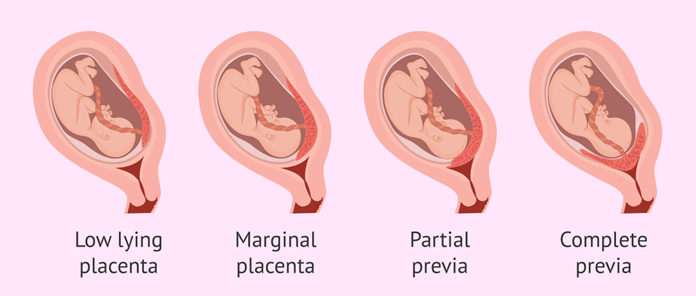A client who is multiparous at 36-weeks gestation is diagnosed with placenta previa. The practical nurse (PN) should monitor this client for which condition?
Thrombosis
Hemorrhage
Edema
Pain
The Correct Answer is B
Placenta previa is a condition in which the placenta partially or completely covers the cervix, which can lead to vaginal bleeding during pregnancy. In severe cases, this bleeding can be life-threatening and can lead to hemorrhage. Therefore, the PN should closely monitor the client for any signs of bleeding or hemorrhage, such as excessive vaginal bleeding, hypotension, tachycardia, or signs of shock. The PN should also ensure that the client receives appropriate medical interventions and that emergency measures are in place in case of sudden bleeding or hemorrhage.

Nursing Test Bank
Naxlex Comprehensive Predictor Exams
Related Questions
Correct Answer is B
Explanation
The PN should inform the client that athlete's foot is a fungal infection and that antibiotics are not effective against fungi. The client needs to use an antifungal medication to treat the infection. The other options are not accurate or appropriate responses.
Antibiotics take a week to be effective against the infection (A) is not accurate because antibiotics are not effective against fungal infections.
When the itching stops, continue to use the ointment for two weeks (C) is not appropriate because the client is using the wrong type of medication.
A thick layer of the medication is needed to stop the itching (D) is not accurate because the client is using the wrong type of medication.

Correct Answer is D
Explanation
The most important behaviors for the practical nurse (PN) to monitor in this situation are argumentativeness and use of profanity. These behaviors may indicate that the client is becoming agitated and may pose a risk to themselves or others. The PN should closely monitor the client's behavior and take appropriate action to ensure the safety of the client and others on the unit. The other behaviors listed may also be important to monitor, but argumentativeness and use of profanity are the most important in this situation
Whether you are a student looking to ace your exams or a practicing nurse seeking to enhance your expertise , our nursing education contents will empower you with the confidence and competence to make a difference in the lives of patients and become a respected leader in the healthcare field.
Visit Naxlex, invest in your future and unlock endless possibilities with our unparalleled nursing education contents today
Report Wrong Answer on the Current Question
Do you disagree with the answer? If yes, what is your expected answer? Explain.
Kindly be descriptive with the issue you are facing.
